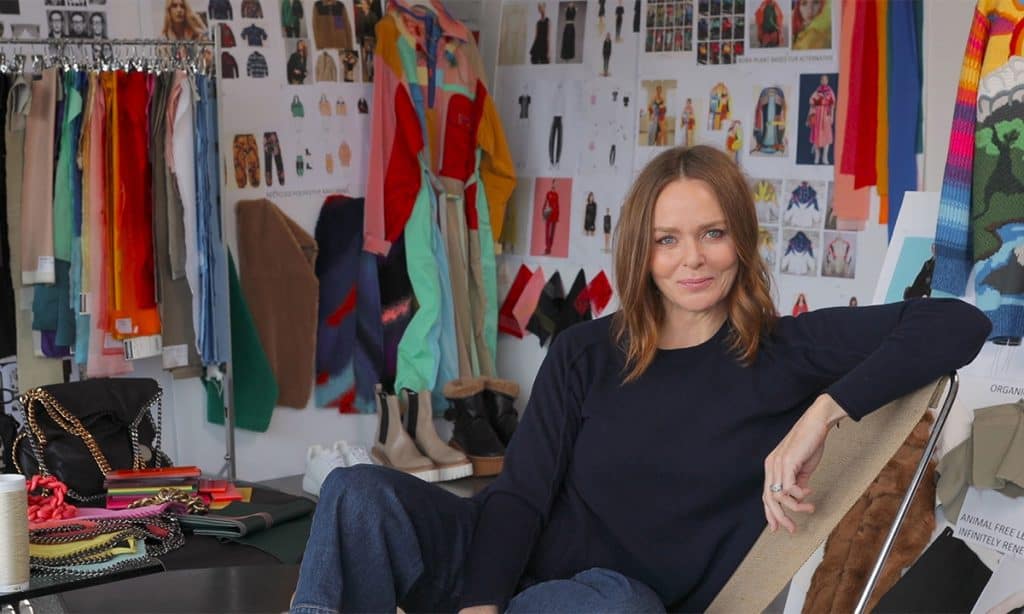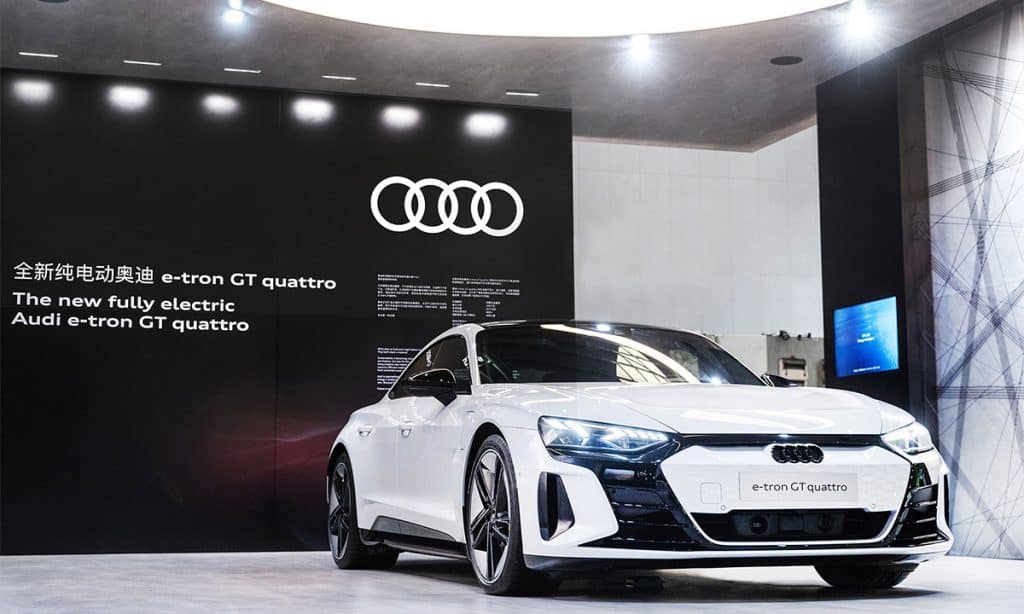Stella McCartney’s return to the Paris Fashion Week was marked by her unveiling of a collection of mushrooms — plenty of these — as the fashion designer advocates “the future of fashion.” McCartney, considered an industry leader in her use of innovative materials with low impact to the environment, at the Paris spectacle showcased trippy, mushroom-influenced ready-to-wear pieces, as well as a bag made entirely of “leather” sourced from laboratory-grown mushroom.
McCartney’s use of sustainable materials draws parallel with Audi’s own initiatives — the carmaker aims to become carbon neutral by 2050. So Audi has not only been accelerating its transition to electric-powered mobility, but is also carrying out a massive decarbonization program throughout its sourcing of materials and manufacturing processes. The company has reduced energy consumption in its supply chain and production, and has been applying a “closed loop” system that cuts carbon emissions in its plants. Audi is also incorporating sustainable materials for its e-tron lineup of full-electric vehicles, the production for which is completely carbon neutral.

At the recent Design Shanghai 2021, Audi and McCartney collaborated on presenting their shared focus on design and forward-looking, sustainable solutions. During the event, Audi and McCartney built a walk-in installation that provided an insight into how the fashion and the automotive industries can think and live in a sustainable way.
To illustrate this, among the items displayed was McCartney’s Falabella Go bag that is made from Econyl, a material consisting purely of upcycled nylon fibers. The fibers come from production waste, remains of fabrics and carpets, or old fishing nets.

Audi uses Econly in the e-tron as well, where the material is found on the car’s carpet and floor mats. Besides Econyl, other sustainable products which Audi incorporates in the e-tron are a leather-free design package, in which the seats are covered with either a combination of artificial leather and Kaskade textile, or a blend of artificial leather and Dinamica micro-fiber. Kaskade and Dinamica are made mainly of polyester sourced from upcycled PET bottles, textiles or fiber scraps.
Just like McCartney’s, Audi’s embrace of innovative materials forms the building block of efforts to become carbon neutral. Its transformation into an electric mobility company promotes sustainability as the new luxury, and Audi prepares to usher in this concept in the Philippines via the introduction of the e-tron later this year.

